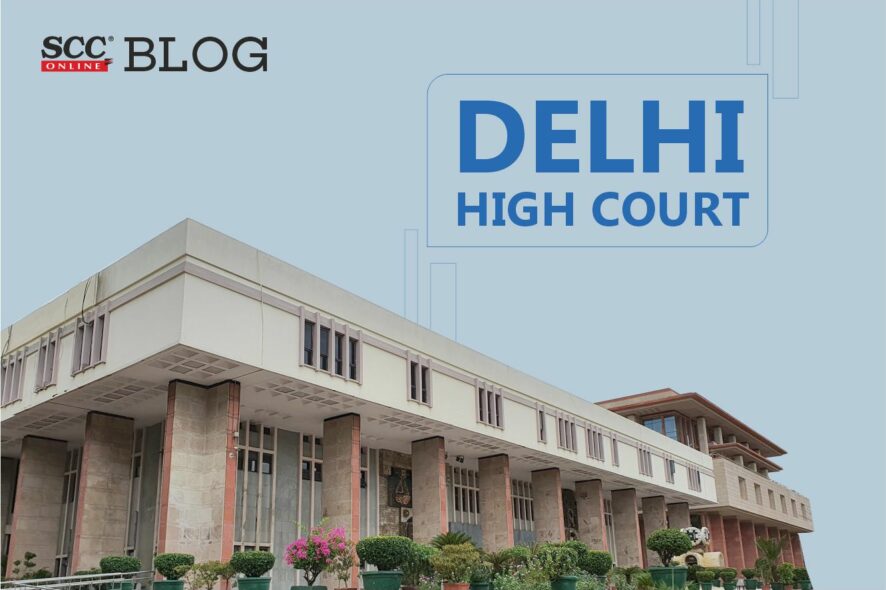Delhi High Court: A Division Bench of Satish Chandra Sharma, CJ and Subramonium Prasad, J. refused to transfer the civil suits pending before the Additional District Judge, Patiala House Courts, New Delhi, to the designated Commercial Court as the Commercial Courts (Amendment) Act, 2018 (‘Amending Act’) shall not apply retrospectively and thus, the advantage provided under Section 19 of the Amending Act cannot be taken, as dispute relates before to the date of commencement of the Act, i.e., 03-05-2018.
The instant transfer petition was filed seeking transfer of civil suits relating to a commercial dispute pending before Additional District Judge, Patiala House Courts, New Delhi to the designated Commercial Courts in wake of Section 15 Commercial Act, 2015 Act on the ground that the suits are commercial in nature and pertain to ‘commercial disputes’ as defined under the Commercial Act, 2015 Act.
The main point of contention by petitioner was that even though the Amending Act, 2018 was to apply to cases filed on or after the institution of Amending Act, 2018, the Saving Clause enumerated in Section 19 of the Amending Act, 2018 conveyed that the Amending Act would have a retrospective impact to the extent that pending cases of the lowered specified value could also be transferred to a Commercial Court.
The issue under consideration is whether the Commercial Courts (Amendment) Act, 2018 (‘the Amending Act’) would apply retrospectively to the instant petition or not?
The Commercial Courts, Commercial Division and Commercial Appellate Division Act, 2015 (‘2015 Act’), now known as Commercial Courts Act, 2015 as amended in 2018 was enacted by the Legislature under which all suits over a sum of Rs.1 Crore was to be transferred from Ordinary Courts to the designated Commercial Courts. The amendment was promulgated whereby territories in which the High Courts had ordinary Original civil jurisdiction, Commercial Courts were to be established at the level of the District Courts as well, and any appeal from these Commercial Courts at the District Level would lie before the Commercial Appellate Division of the High Court. Further, the Amending Act reduced the specified value to Rupees three lakhs and, therefore, widened the pecuniary jurisdiction exercised by such District Courts (Commercial).
It was brought to the attention of the Court that the administrative side of this Court vide order dated 04-02-2020 ruled that the Amending Act would be applicable to only those cases which were instituted on or after 03-05-2018 and accordingly vide order dated 25-03-2022 notice was issued to the High Court to produce the record so as to demonstrate the rationale of the said order.
Dr. Amit George, Standing Counsel for the Delhi High Court, substantiated that the Amending Act is not applicable retrospectively, on the following grounds:
- The Amending Act categorically states that it shall apply only to cases relating to commercial disputes that have been filed on or after the date of its commencement, i.e. 03-05-2018.
- The general rule of interpretation is that every statute is prospective in operation until and unless it has been made expressly retrospectively in application.
-
The Saving Clause provided in Section 19 of the Amending Act has to be read harmoniously with Section 15 of the 2015 Act, and that any other interpretation by the Court would frustrate the very object of the Amending Act and would reduce Section 19 to a nullity.
The Court noted that 188th Report of the Law Commission of India on “Proposals for Constitution of Hi-Tech Fast — Track Commercial Divisions in High Courts”, states that the purpose of instituting the Commercial Courts Act, 2015, was to expedite commercial cases of a high pecuniary value and to create confidence in the commercial circles nationally and globally.
Placing reliance on Monnet Ispat and Energy Limited v. Union of India, (2012) 11 SCC 1 The Supreme Court observed that the cardinal principle of construction is that every statute is prima facie prospective unless it is expressly or by necessary implication made to have retrospective operation.
The Court observed that it cannot be said that there is any lack of clarity or ambiguity in the phrasing of Section 19 of the Amending Act which categorically states that the provisions of the Amending Act will apply to cases relating to commercial disputes filed on or after the date of commencement of the Act, i.e., 03-05-2018.
Thus, the Court opined that considering it to be retrospective in effect will lead to administrative difficulties which is contrary to the intention of the Legislature and had it intended for the Amending Act to be retrospective in nature, there is nothing that could have prevented the Legislature from explicitly specifying the same. Additionally, the purpose of the Saving Clause is to preserve from destruction certain rights, remedies and privileges already existing. This Clause saves all the rights that were previously there; it does not create any new rights.
The Court thus held that the Petitioners cannot take advantage of the Saving Clause in the Amending Act as the Act shall not apply retrospectively and therefore, the Court refused to transfer the civil suits pending before the Additional District Judge, Patiala House Courts, New Delhi, to the designated Commercial Court.
[Satyanarayan Khandelwal v. Prem Arora, 2022 SCC OnLine Del 2142 decided on 18-07-2022]
Advocates who appeared in this case :
Mr. Praveen Suri and Ms. Komal Chhibber, Advocates, for the Petitioner;
Mr. Vipin Nandwani, Advocate for the Respondent 1 and 2 Dr. Amit George, Standing Counsel, Delhi High Court with Mr. Rishabh Dheer & Mr. Amol Acharya, Advocates, for the Respondent.
*Arunima Bose, Editorial Assistant has reported this brief.






